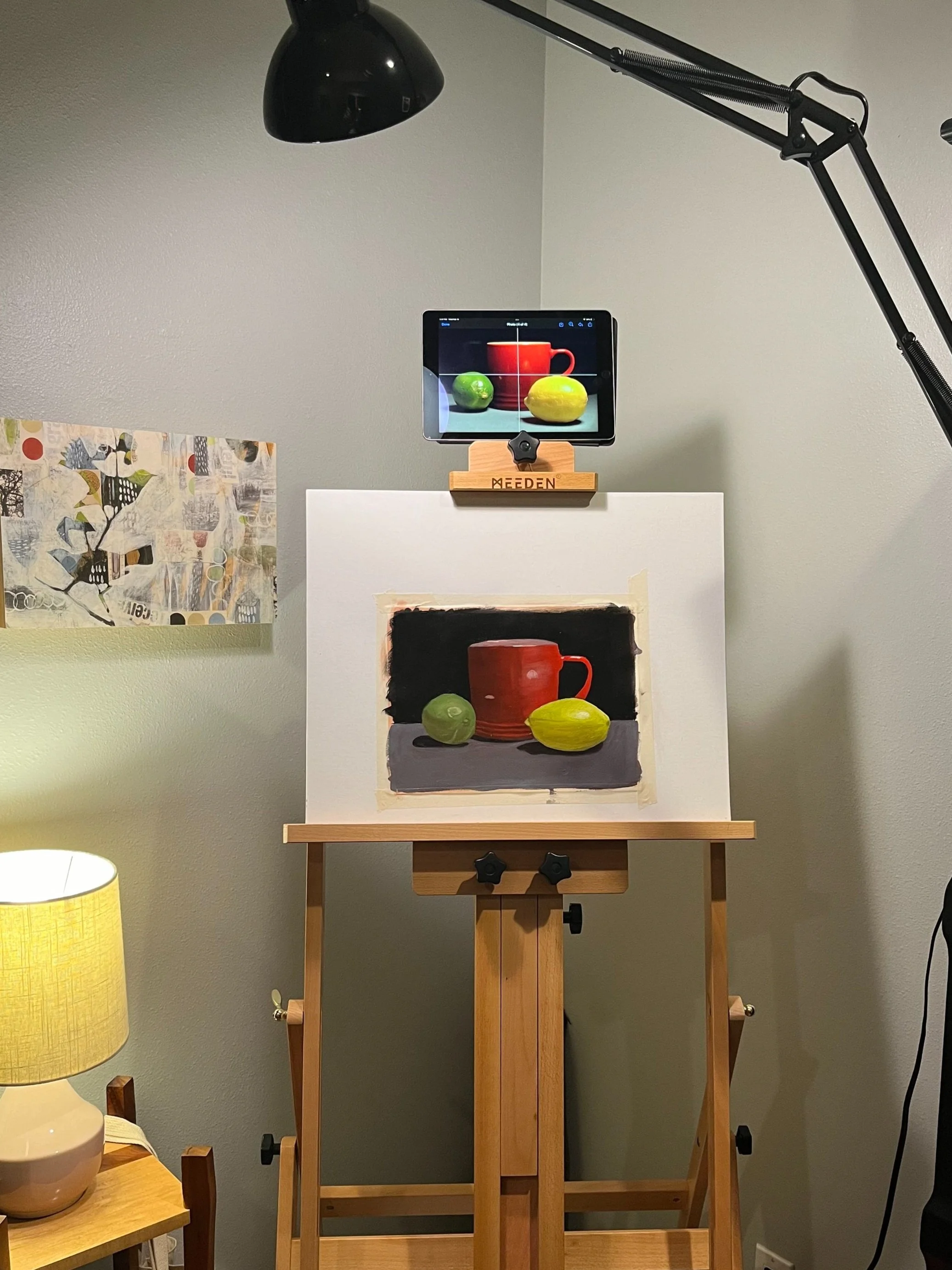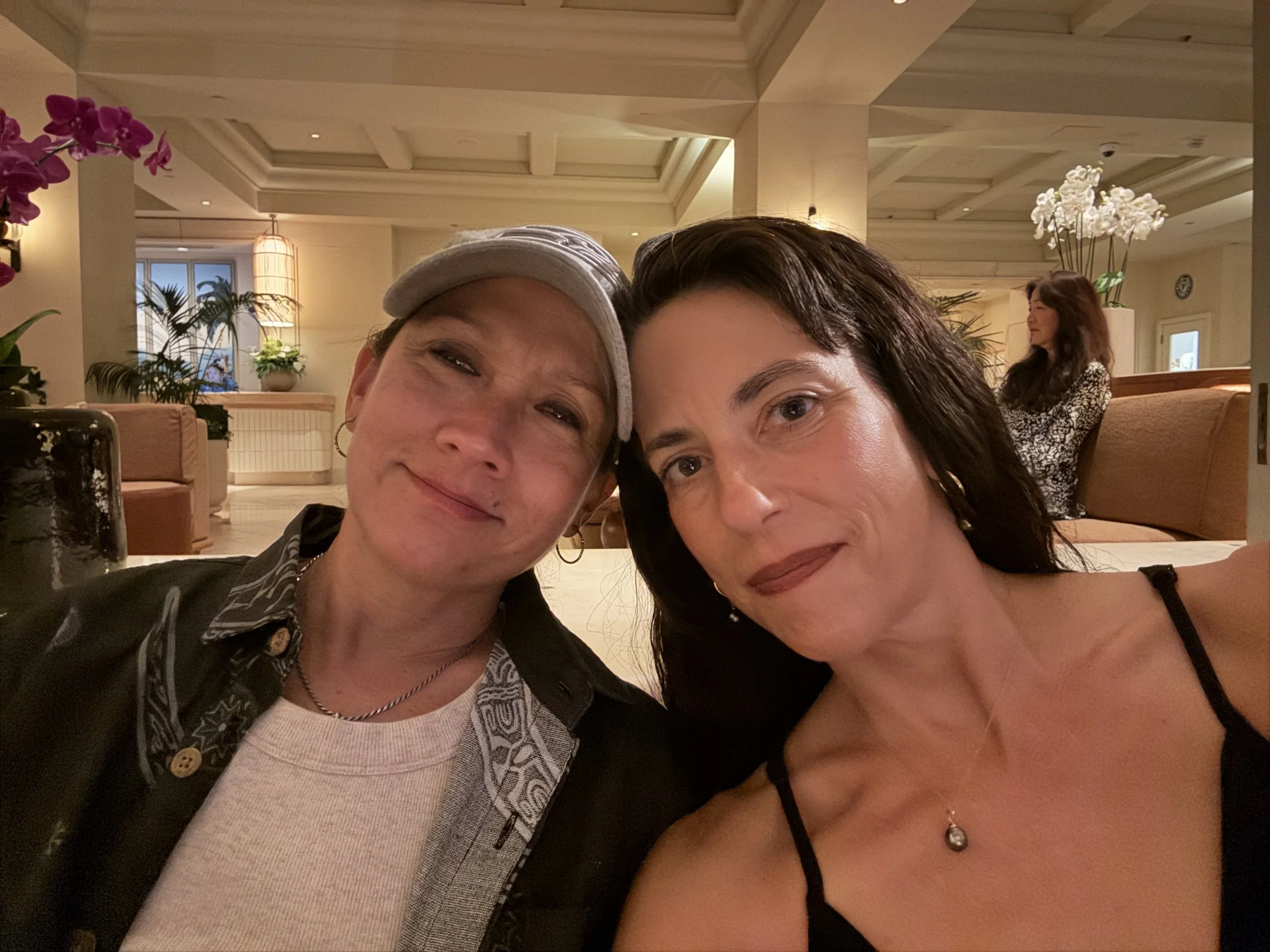Cultivating meaning without certainty: Patiently paying attention
“O, a meaning!”
In that single line from a poem, Archibald MacLeish captures something I've come to love about how we find meaning today: the way it arrives like a surprise gift, often long after the experience that created it. Not the meaning of everything, but a meaning. One piece of life's puzzle suddenly clicking into place.
It wasn't always like this. For most of human history, meaning came pre-assembled — a divine order passed down through generations that explained everything from our daily work to our cosmic purpose (yay?). The big questions were already answered; our job was to listen and live them out.
The Enlightenment of the late 1600s shattered this certainty, replacing revelation with reason. What was once given to us became something we had to discover for ourselves.
David Brooks summarizes this change in a recent Atlantic article:
“Crudely put, the Enlightenment took away the primacy of the community and replaced it with the primacy of the autonomous individual. It created neutral public systems such as democracy, law, and free speech to give individuals a spacious civil order within which they could figure their own life.”
This shift from inherited to discovered meaning fundamentally changed how we experience life. When meaning isn't handed down, we must work toward the “O, a meaning!” moments, which arrive not through obedience to an established third-party wisdom, but through patient attention to our own experience. The "spacious civil order" Brooks describes creates room for individual meaning-making, but it also demands something from us: the courage to sit with uncertainty until meaning reveals itself.
Moments of insight no longer come as confirmations of what we've been taught, but as discoveries of what we've learned to notice. They emerge unexpectedly, these glimpses of pattern and purpose, but only when we've created the inner space to receive them.
Creating the conditions for meaning: Intention and surrender
Just before Lahaina burned in August 2023, I quit my job helping lead a remote marketing agency because the founder wasn’t paying the people I hired. In the months that followed, as the debris that was once a town was removed, the remote-work market shifted against me, and my wife received a cancer diagnosis, I found myself facing uncertainty in new, profound ways.
Malia after surgery
This was hard. So hard.
I learned to sit with uncertainty in a way no spiritual teaching had prepared me for. This wasn't about letting go gracefully — it was about having everything pulled from your grip until sitting still became the only option. "Uncertainty is opportunity we're not aware of yet," my wife wrote on a post-it note and stuck it to our fridge. She was right. In that stillness, surprisingly, meaning began to surface.
Creating conditions for meaning, I'm learning, requires a different kind of intention — not the focused drive toward a goal, but the conscious choice to remain open. It means protecting space for possibility rather than filling it with action. Sometimes the most intentional thing we can do is wait.
Through inner simplification (the practice of clearing mental and emotional clutter to create space for what matters) I began to recognize how meaning actually emerges. Just before my wife’s first surgery, I started a part-time retail job making one-fifth of my previous salary. It was not a fun time. I was angry and bitter. But as I learned to release my predetermined ideas about success and purpose, something unexpected happened: I began to look forward to my shifts at Lululemon.
Letting go of who I thought I should be meant I could finally see the meaning that was already there: in new relationships with coworkers, in brief connections with regular customers, in work that asks nothing more of me than to be present. Most importantly, working part-time meant I could be with my wife through multiple surgeries and radiation treatments. It was a gift of time I wouldn't have had in my previous career.
New “lemon” friends
I adore them all. They keep me young and make me laugh.
When not folding Align leggings or ABC Pants, I also began to paint. Like the palm in Merwin's poem, growing "slowly and without eyes," I couldn't see where any of this was leading. But something was unfolding — not because I forced it, but because I finally stopped resisting what was happening.
Acknowledge that meaning takes time
“How we spend our days is, of course, how we spend our lives.”
Annie Dillard's jewel of a line hits differently — or it should — in our age of endless scrolling. We claim we're too busy to pause, to reflect, to simply be present, yet we spend hours mindlessly refreshing feeds, checking notifications, consuming updates. This compulsive busyness fills the spaces where meaning might surface. It’s also void of meaning.
Real connection happens in moments we can't schedule or optimize — like an unexpected conversation with a guest at the store about their upcoming surgery, or sitting quietly with my wife after a surgery. These "unproductive" times often reveal their significance only in retrospect. "O, a meaning!" we realize, sometimes months or years later, seeing how separate experiences connected into something larger than their parts.
The irony is that our desperate pursuit of productivity, our fear of (or shame around) empty time actually prevents these connections from forming. We're so busy documenting life that we forget to live it, so focused on ascribing meaning publicly that we miss it taking shape in the quiet moments privately.
Early days of painting
I had no idea what I was doing and relied on YouTube to teach me. Still do.
Meaning requires space to land. You can't journal or vision board your way to it, though we're constantly sold tools promising to help us "find our purpose." The truth is simpler and harder: we have to stop. Stop planning, stop striving, stop filling every moment with…productivity. Put your phone down.
Only in the quiet of genuine presence can we notice what's already taking shape. And often it's only later — sometimes months or years later — that we recognize the pattern those quiet moments were weaving. "O, a meaning!" we exclaim, finally seeing how our choices and experiences have grown into something larger than we could have planned.
Give it your regular attention
My wife and I used to measure our days in "active" versus "passive" time. We only had so many "passive" hours to use each day — time spent observing life rather than being in it. The distinction was simple: watching YouTube was passive; having a conversation was active. Scrolling Instagram was passive; making art was active. Reading the news was passive; taking a walk was active.
Too much of modern life happens at a remove. We watch others live instead of generating and inhabiting our own experiences. Being present, I've learned, is about living more in “active” time versus “passive” time. This is what the Enlightenment handed us 400 years ago: not just the freedom to choose what deserves our focus, but the responsibility to actually live inside that choice.
This kind of active presence creates fertile ground for meaning. Like tending a garden, it requires regular attention not just to what's growing, but to the conditions that allow growth. When we're genuinely engaged in our moments, patterns begin to emerge naturally. But these insights can't be forced or rushed; they surface only through patient, consistent attention to what's taking root in our lives.
Remove obstacles to meaning-making
Clearing space for meaning is a daily choice, and it's harder than it sounds. It means saying no, which we are not good at. Saying no feels like missing out, like failing to optimize every moment of our lives.
Optimizing my 51st birthday
The staycations on Maui are epic.
The thing is, not choosing is still choosing. When we don't say no to a notification, we're saying yes to interruption. When we don't stop scrolling, we're choosing distraction. When we accept every "should" without question, we're letting others choose for us. So how do you nkow what to choose? Ask and answer this question:
What do I truly value?
The path forward isn't complicated, though it requires courage: Stop. Identify what truly matters. Then protect it fiercely by clearing away whatever doesn't serve those values — even good things that aren't your things and bad things that feel so good. In this deliberate emptiness, something extraordinary happens: meaning begins to surface not as grand revelations, but as gentle recognitions.
"O, a meaning!" we exclaim, finally understanding that it was always there, waiting patiently for us to create the space to notice it.




